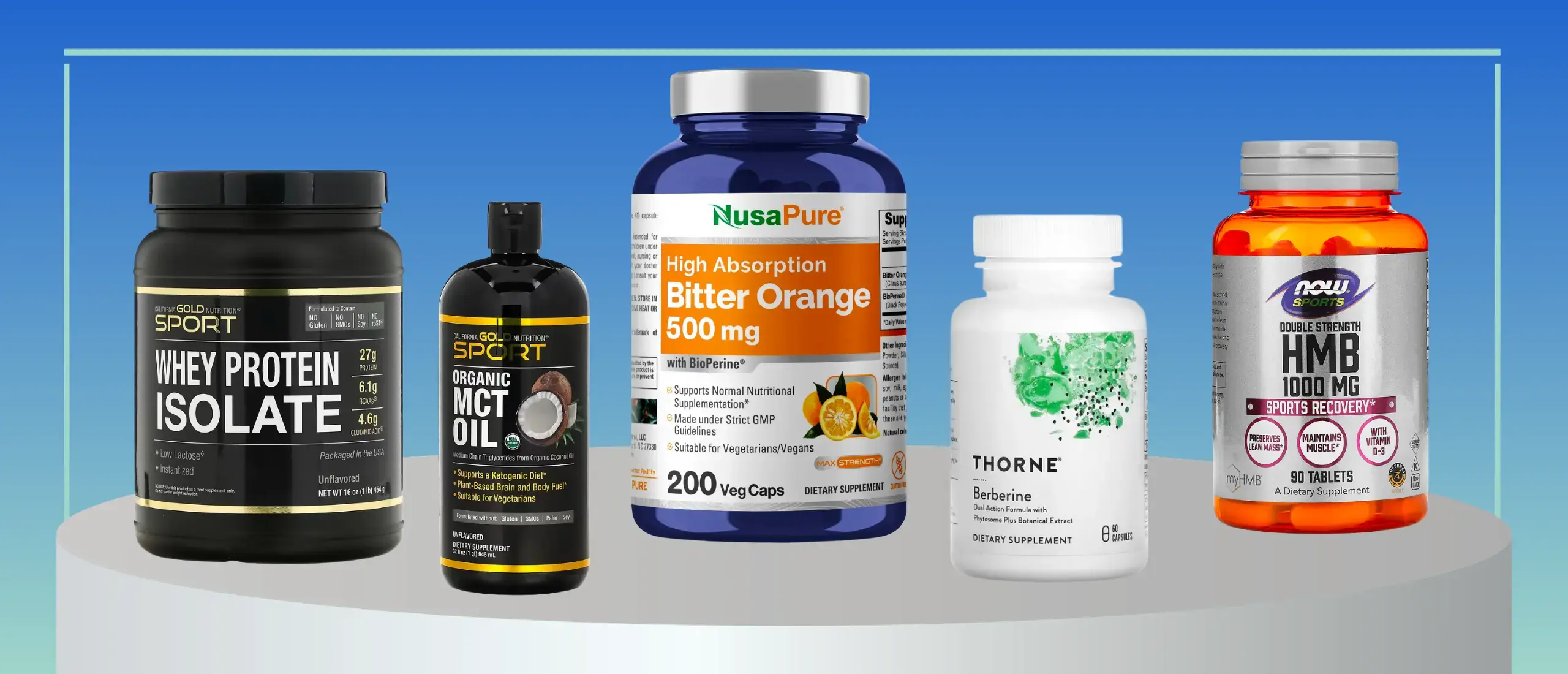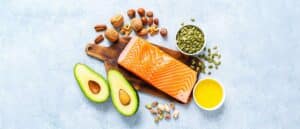Five Expert-Backed Supplements To Help Men Lose Weight
- By Rebekah Harding
- January 5, 2024
I
f you’re trying to lose weight, you’ve likely stumbled across pharmaceutical solutions such as Ozempic and Wegovy. But there are non-prescription options too, says food scientist and nutrition professor Taylor C. Wallace, Ph.D., CFS, FACN. Certain weight loss supplements for men may maximize your weight loss results.
One caveat: “There aren’t any supplements out there that are effective in helping people lose weight on their own,” says Wallace. In addition to supplements, you’ll need to eat a balanced diet and exercise regularly to lose weight effectively.
About the Expert:
Taylor C. Wallace, Ph.D., C.F.S., F.A.C.N., is a food scientist, professor of nutrition and food science at George Mason University, and CEO of Think Healthy Group, a nutrition counseling firm.
How Can Supplements Support Weight Loss?
There’s a handful of weight loss supplements for men that may reduce your appetite, improve metabolic function, and increase muscle mass, according to Wallace.
Are certain weight loss supplements better for men?
While the basics of a healthy weight loss strategy—eating a balanced diet and getting enough exercise—can help most people get trim, the effectiveness of some weight loss supplements may differ depending on your sex.
Compared to women, “men tend to have more lean body mass and therefore a higher metabolism (1),” Wallace explains. “You could suspect that a supplement like HMB (which breaks down amino acids to support muscle growth) might be more effective in men.”
Wallace notes that while there’s no research to support the theory that certain supplements could work better for men just yet, “it’s a good research question.”
Optimize Your Weight Loss
5 Weight Loss Supplements for Men
The FDA doesn’t regulate dietary supplements (2), so it’s best to also consider looping your doctor into the conversation before adding any to your stack. Consider discussing the below with the health professionals in your network.
Berberine
Berberine is a type of ammonium salt that may support weight loss. While researchers are still figuring out why berberine has this effect, “it may regulate obesity-induced inflammation that can cause insulin resistance,” Wallace notes (3). Which is not too different from how semaglutide, the active ingredient in Ozempic, may improve insulin resistance in people with type 2 diabetes (4).
In human clinical trials, berberine supplementation without any lifestyle modifications, resulted in only about 2.1 kg (4.5. lbs) of weight lost over a three to four month period (5).
While there currently isn’t a recommended dose of berberine, Wallace notes most studies suggest taking 500-1,500 milligrams (mg) per day to reap the most benefits.
Bitter Orange
Bitter Orange—the extract of an acidic citrus fruit—has been reported to increase your body’s resting energy expenditure and fat oxidation rates (how fast your body breaks down fat), according to Wallace (6). He adds that these effects may be amplified with exercise.
Wallace explains the active compound in bitter orange is p-synephrine, which has been shown to be safe to consume at 100 mg daily (6).
MCTs (medium chain triglycerides)
Medium chain triglycerides, or MCTs, are found in foods like coconut oil and palm kernel oil (7). Wallace points to several human clinical trials that have linked MCT supplementation to reduced body weight, subcutaneous fat (stubborn belly fat), and waist circumference (8).
“Medium chain triglycerides, unlike most fats in the human diet, are easier to oxidize and digest,” says Wallace. When you take MCTs, they are transported directly from the digestive system to the liver and converted into energy or ketones (7).
Research suggests up to 4 to 7 tablespoons of MCT oil (which you can take by way of tincture) is effective and safe (9).
HMB (hydroxy-B-methylbutyrate)
“HMB is mostly used by gym-goers for muscle and strength building,” says Wallace. “At least one clinical trial supports that the use of this supplement during resistance exercise can reduce body fat while maintaining muscle mass during intermittent fasting (10).”
Another 2008 study found that older adults who took HMB while participating in a strength training program lost more body fat and gained more lean muscle mass compared to those who didn’t take the supplement (11).
There’s no standard dose of HMB, but studies suggest that doses up to 3 grams are effective and safe.
Protein powder
Protein powder makes it easier to hit your macros, supporting muscle growth and maintenance. But did you know that this common supplement could also be your secret weapon in your weight loss journey?
“Protein powders can help manage weight by assisting in appetite control,” says Wallace. “Just be cautious and read the label, as many products contain a lot of added sugars that can negate any potential effects.”
Daily protein recommendations should be based on your weight and activity levels, so touch base with your doctor to confirm how much you should be getting.
References
1. Bredella (2017). Sex Differences in Body Composition.
2. FDA. Facts about Dietary Supplements.
3. Och, et al (2022). Berberine, a Herbal Metabolite in the Metabolic Syndrome: The Risk Factors, Course, and Consequences of the Disease.
4. Mahapatra, et al (2022). Semaglutide, a glucagon like peptide-1 receptor agonist with cardiovascular benefits for management of type 2 diabetes.
5. Asbaghi, et al (2020). The effect of berberine supplementation on obesity parameters, inflammation and liver function enzymes: A systematic review and meta-analysis of randomized controlled trials.
6. Koncz, et al (2022). The Safety and Efficacy of Citrus aurantium (Bitter Orange) Extracts and p-Synephrine: A Systematic Review and Meta-Analysis.
7. Jadhav, et al (2023). Triglycerides of medium-chain fatty acids: a concise review.
8. Vetrani, et al (2023). Supplementation with medium-chain fatty acids increases body weight loss during very low-calorie ketogenic diet: a retrospective analysis in a real-life setting.
9. Parrish. The Use of Medium-Chain Triglycerides in Gastrointestinal Disorders.
10. Keenan, et al (2020). The Effects of Intermittent Fasting Combined with Resistance Training on Lean Body Mass: A Systematic Review of Human Studies.
11. Wilson, et al (2008). Effects of beta-hydroxy-beta-methylbutyrate (HMB) on exercise performance and body composition across varying levels of age, sex, and training experience: A review.












